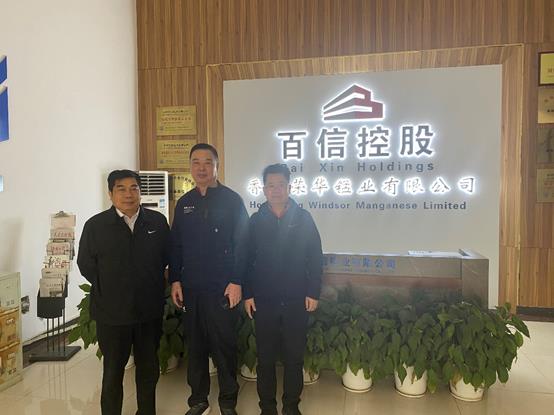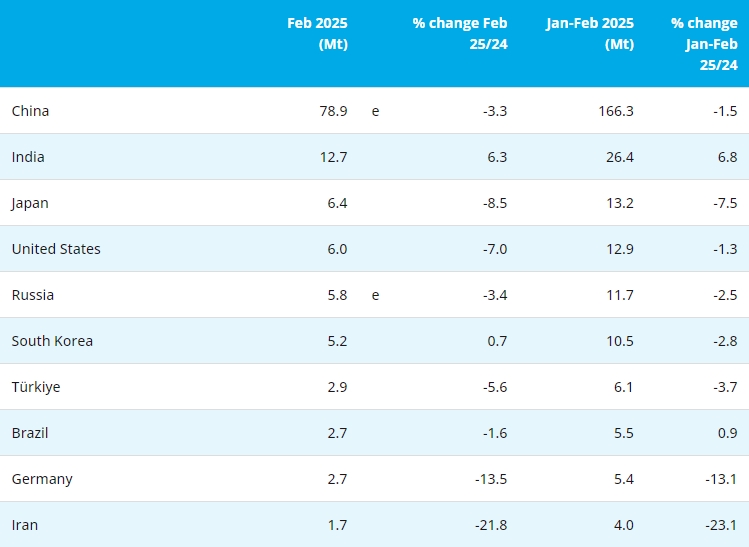[ferro-alloys.com]The London Metal Exchange will be returning to open outcry trade once it is possible to do so, and the recent move to 100% electronic trading is only temporary, LME CEO Matthew Chamberlain told S&P Global Platts on Tuesday.
The exchange officially suspended open-outcry ring trading on March 20 in the face of the ongoing coronavirus pandemic.
One trader predicted at the time that this could be the "nail in the coffin" for open-outcry trading.
Most products, across exchanges not just the LME, are now traded on electronic screens and there is often debate around the need for open-outcry.
"COVID-19 is having so many unexpected consequences, it's getting really bad out there," the trader said.
Still, Chamberlain was bullish on moving back once the timing is right.
He said that he has given an "absolute assurance" to LME members that there will be a move back to the ring, adding that it was not an attempt "by stealth to move the market to electronic."
Chamberlain said that data compiled by the LME in 2019 showed that, although it is possible to operate the ring electronically, this didn't prove a "manifest improvement." As such, switching to outright electronic trading isn't currently on the cards, he added.
He also praised members for their cooperation in these unprecedented times, which has kept liquidity strong.
"There was a fear of liquidity drying up [like in the great financial crash of 2008-09], but we haven't seen that," he said.
In conversation with Platts, Chamberlain was optimistic of what things will look like on the other side of the pandemic, when the world's economy awakens from lockdown.
He said he expects things to be "tough" for industry as a whole in the face of a possible prolonged recession, but added that he remains steadfast in his belief that society has the "tools to get through it."
The CEO was also confident that the exchange's business model is structured in such a way that it can weather a global downturn.
A lack of US oil storage capacity led Monday to the front-month NYMEX WTI crude oil futures contract settling in negative territory, at minus $37.63/b, down $55.90/b from Friday. The contract had never before traded in negative territory, and the previous record low front-month settlement was $10.42/b recorded on March 31, 1986.
ABILITY TO ADD STORAGE
When asked if the news sent shockwaves across commodities markets, Chamberlain said that the LME is designed to soak up any potential temporary metals surplus.
He added that the storage profile of metals is very different to oil, pointing out that metals are easier to stock. He also said that the exchange now has the means to quickly increase official licensed storage facilities if a glut were to build, which could potentially bring in additional revenue.
He noted that it is possible there will be oversupply of metals such as aluminum as the auto and aviation industries take a hit from the pandemic, but said "I wouldn't expect the same challenge as oil."
He added that, from a financial perspective, redemptions by oil traders have a knock-on effect on metals, as they liquidate positions to free up cash.
The CEO said that, when the pandemic news broke in March, there was a "significant withdrawal of commodities investing" to free up cash. However, once people's portfolios have realigned, he said he expects the market "to bed down for the long term. The biggest medium-term impact will be on global supply chains."
When queried on the potential of governments to start seeking national security, Chamberlain said it is possible to envisage a world that sees more regional/state stockpiling. He added that this would be a positive for the LME as it could open registered warehouses in more countries, as and when required.
Chamberlain said he is "still a fan of globalization" but added that he accepts events, both pre and post pandemic, could encourage governments to back local and regional supply chains. This is something that the LME's warehouse system could accommodate and benefit from, he said.
STILL GOING GREEN
One key concern, across the world, is that the resulting economic fallout from the pandemic could lead to a downturn in investment in such things as clean energy, and the transition to electrification of mobility.
The LME has been driving initiatives such as responsible supply chains and a move to the ability to trace the environmental footprint of metals production.
"The pandemic won't affect timelines for implementation of [our] green initiatives. There is [currently] no evidence that journey is slowing owing to the pandemic," he said.
"I think society will come out feeling more strongly about environmental, social and governance [ESG] matters," he said, adding that there will likely be "a greater sense of social responsibility."
Chamberlain said he expects to see "more pressure, not less, on these topics."
(S&P Global Platts)
- [Editor:王可]



 Save
Save Print
Print Daily News
Daily News Research
Research Magazine
Magazine Company Database
Company Database Customized Database
Customized Database Conferences
Conferences Advertisement
Advertisement Trade
Trade








 Online inquiry
Online inquiry Contact
Contact

Tell Us What You Think